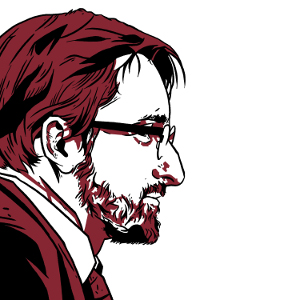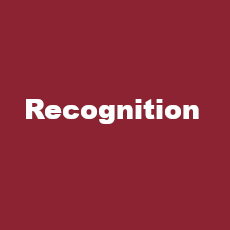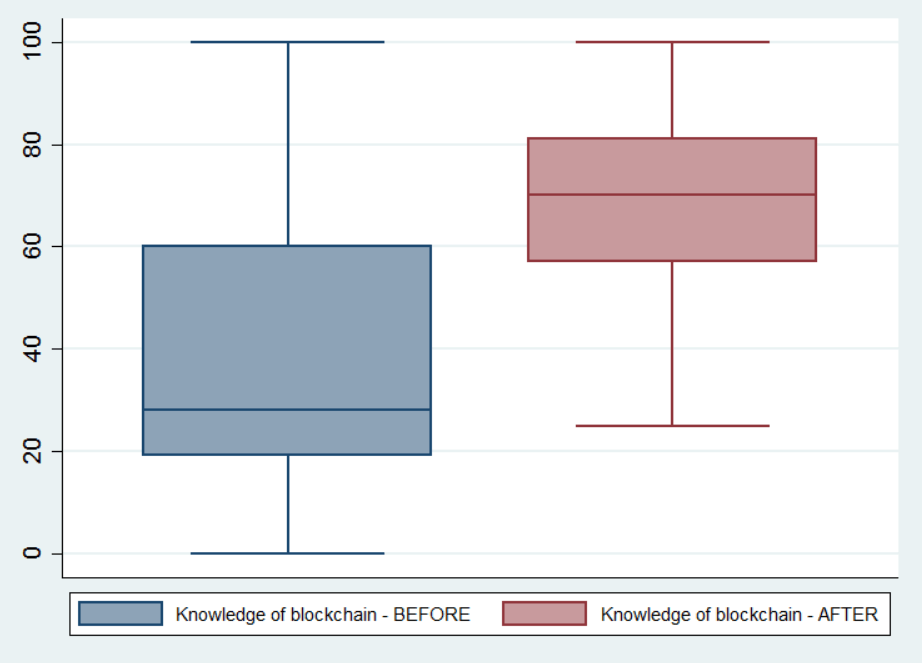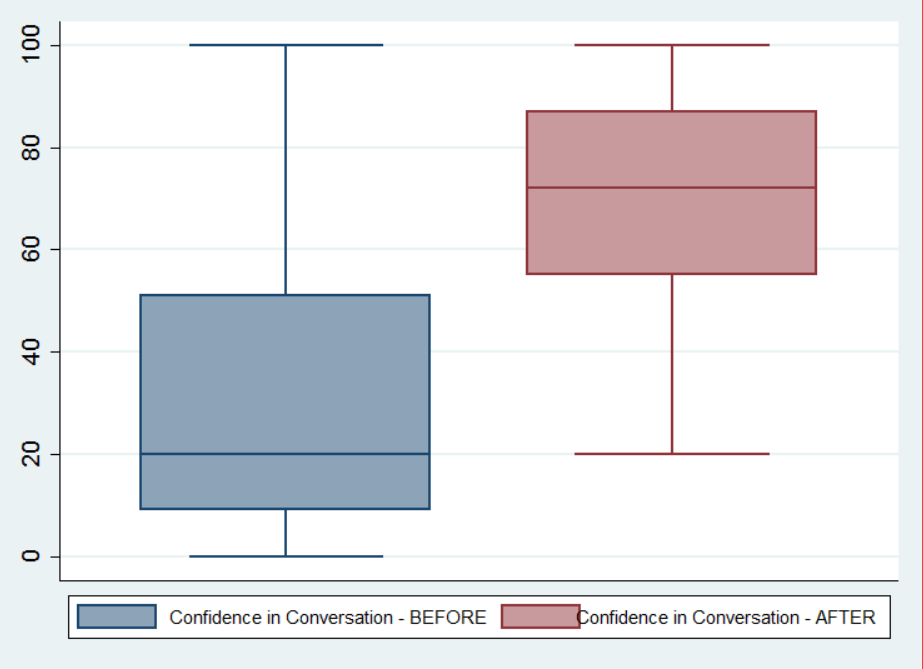Blockchain Blockchain is not only changing the world, it has changed my life—bringing me opportunities to both ‘teach the future’ (through my course “Blockchain: Industry Disruptor & Creator”) and help ‘build the future’ (through my advisory work). I recently served as a Subject Matter Advisor to the Operations Subcommittee of the Wyoming Stable Token initiative out of the State of Wyoming; the token launched as Frontier token (FRNT) in August 2025 as the first stabletoken issued by a ‘sovereign’ in the United States (rather than by a for-profit firm). It is an honor to have served on a world-first initiative. In “recognition of exceptional achievement and contribution to Blockchain and allied disciplines,” I was inducted as a Fellow to the British Blockchain Association, a global organization of scholars and practitioners who perform incredible work in bringing academic rigor and professionalism to an oft-misunderstood space full of both geniuses trying to change the world and con artists / carnival barkers trying to bilk the uninitiated and eager. I have published research on how the security mechanism of Bitcoin wallets (and other UTXO cryptocurrencies such as Litecoin (LTC) and Dogecoin (DOGE)) inflates apparent transaction volumes by 8 times, reduces the apparent cost of Bitcoin transactions by 3–7 times and inflates wallet counts; this skews the perceptions of increasing adoption as Bitcoin’s price rises. I hold my responsibility as a blockchain educator, advisor, and consultant seriously, and I shall do my part to help people to understand just how revolutionary blockchain can be for society. Blockchain is not only changing the world, it has changed my life—bringing me opportunities to both ‘teach the future’ (through my course “Blockchain: Industry Disruptor & Creator”) and help ‘build the future’ (through my advisory work). I recently served as a Subject Matter Advisor to the Operations Subcommittee of the Wyoming Stable Token initiative out of the State of Wyoming; the token launched as Frontier token (FRNT) in August 2025 as the first stabletoken issued by a ‘sovereign’ in the United States (rather than by a for-profit firm). It is an honor to have served on a world-first initiative. In “recognition of exceptional achievement and contribution to Blockchain and allied disciplines,” I was inducted as a Fellow to the British Blockchain Association, a global organization of scholars and practitioners who perform incredible work in bringing academic rigor and professionalism to an oft-misunderstood space full of both geniuses trying to change the world and con artists / carnival barkers trying to bilk the uninitiated and eager. I have published research on how the security mechanism of Bitcoin wallets (and other UTXO cryptocurrencies such as Litecoin (LTC) and Dogecoin (DOGE)) inflates apparent transaction volumes by 8 times, reduces the apparent cost of Bitcoin transactions by 3–7 times and inflates wallet counts; this skews the perceptions of increasing adoption as Bitcoin’s price rises. I hold my responsibility as a blockchain educator, advisor, and consultant seriously, and I shall do my part to help people to understand just how revolutionary blockchain can be for society.
Subject Matter Expert In April 2018, I had the honor to brief His Excellency Pierre Gramegna, the Minister of Finance of Luxembourg on the topic of cryptocurrencies and blockchain. Luxembourg has a robust FinTech ecosystem, including a dedicated national FinTech platform: the Luxembourg House of Financial Technology (The LHoFT). Other attendees to the briefing included the Honorable Ms. Jeanne Crauser, the Consul General in New York and Executive Director of the Luxembourg Trade and Investment Office; Ms. Isabelle Goubin, Director General of Treasury; Bob Kieffer, Senior Advisor to the Government and Coordinator General at the Ministry of Finance; Nicolas Mackel, CEO of Luxembourg for Finance; and Mr. Benjamin Bosch, the Economic Attaché to the Luxembourg Trade and Investment Office. 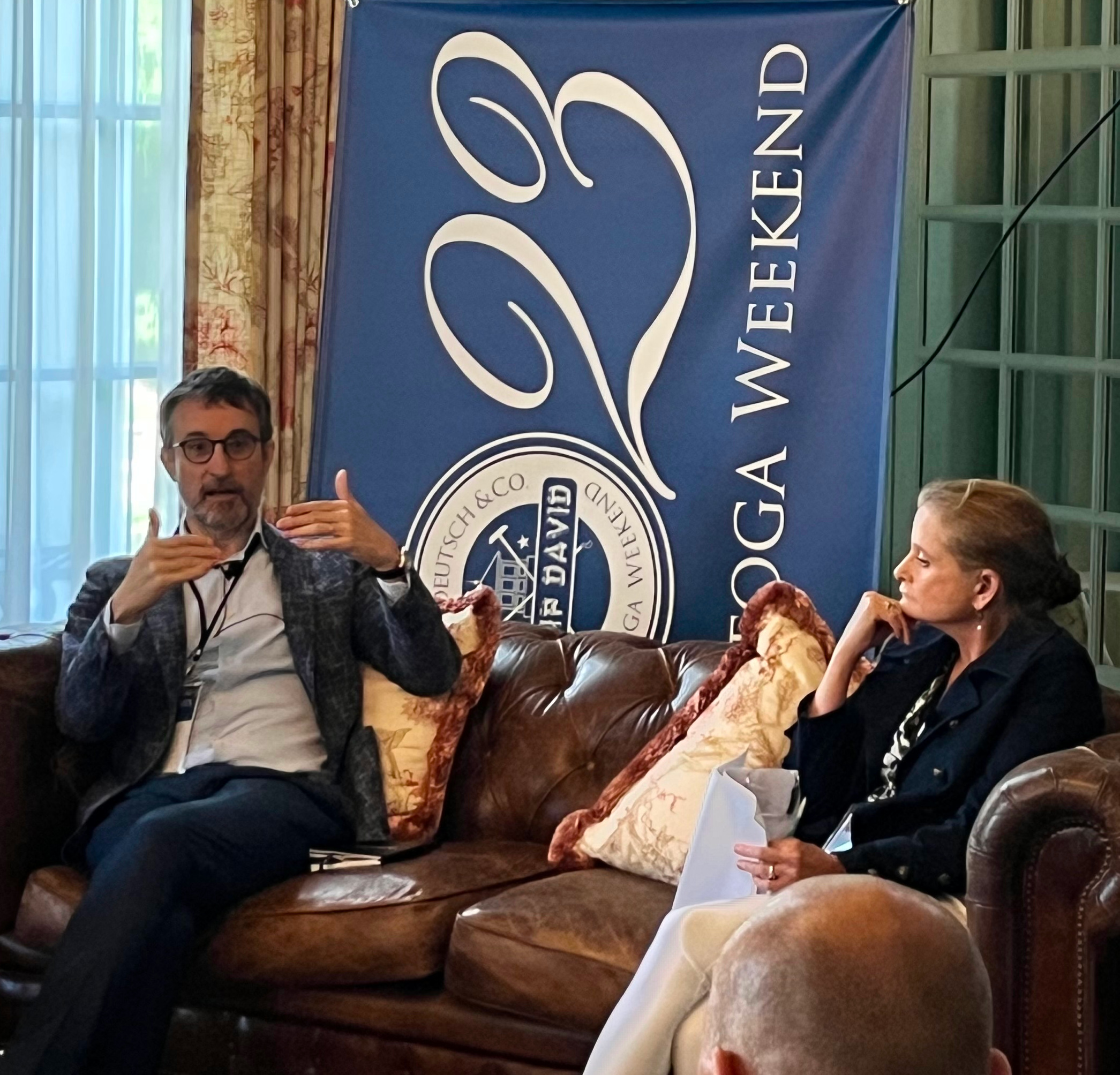 I was an invited Subject Matter Expert for a fireside chat on the topic of “Out-sourcing, In-Sourcing, and the Future of Trade” with Meredith Broadbent, former chair of the U.S. International Trade Commission, at the Camp David Saratoga Weekend. I was an invited Subject Matter Expert for a fireside chat on the topic of “Out-sourcing, In-Sourcing, and the Future of Trade” with Meredith Broadbent, former chair of the U.S. International Trade Commission, at the Camp David Saratoga Weekend.
I have also given keynote addresses to numerous industry groups, including talks on “Blockchain & the Food Industry” to members of local chapters of the Association of Food Industries and the Institute of Food Technologists, as well as a keynote on “Why Care About Blockchain? (When You Don't Necessarily Care About Crypto)” to members of Society for Information Management New York Metro Chapter (SIMNY). I participated in a “Financial Technology: Friend or Foe?” Panel at Guggenheim Partners, LLC, and served as a panelist in the “NFTs: Welcome to the Metaverse” online event (sponsored by the Museum of American Finance and Fordham University), presented on “Blockchain, Smart Contracts & IoT” at the InterCon (The Internet Conference), and served as a subject matter expert to Bain Consulting (Beijing)’s “Blockchain in Philanthropy” report for United Way China. Advisory Services My greatest privilege has been serving as advisor to many talented teams who are building the future utilizing blockchain. One of the most high profile use cases was advising on a world-first financial instrument, the Professional Athlete Investment Token (PAInT), spearheaded by former Brooklyn Nets’ player Spencer Dinwiddie (now with the Los Angeles Lakers). As with any world-first, the project was challenged by many obstacles (including by the NBA itself ), but in the end, during the global COVID-19 recession, the project successfully raised $1.4 million for a debt security token in a regulatory-compliant way. Since the sale, all payments were made on the three-year instrument to the token holders and the project came to a successful conclusion. I currently serve as an advisor to Rensa Games, a blockchain platform that is trying to disrupt the $200 billion video game industry. With its “Publish • Purchase • Play” platform for video games, tokens on the Polygon blockchain represent not just ownership of a video game by a player (which provide access to video games that are purchased), but importantly and separately also represent ownership of the royalty streams for the creative types who contributed to the game in the first place. When game makers upload games to the Rensa platform, they designate the myriad contributors via their wallet addresses. That includes musicians, character artists, map makers, texture artists, voice actors, and so on. Then, when a player buys a game, each of the contributors to the game are paid in real time from the price of the game paid by the player (minus Rensa’s small fee to keep the lights on). The payments are in real time (as fast as the block is settled) and fully auditable by the contributors. They see the money that came in from the purchase as well as their cut (and everyone else’s cut). This level of transparency is never seen in industries such as music or film, where insiders routinely obfuscate the money flows to cheat the creative types out of their fair share; just ask Peter Jackson of the “Lord of the Rings” films. I also serve as an advisor to Fennel Labs, which is building a messaging application for civilians and organizations working in conflict or disaster settings. The project allows users to write, read and share maps containing pre-defined digital flags and emblems for the purpose of communicating situational awareness in complicated theaters of deployment. It’s an example of Blockchain for Social Good, helping NGOs and government response teams to help those in trouble. Past advisory work has included Cellarius, a cyberpunk franchise that leveraged user-generated assets and governance to create a collaborative, fan-curated transmedia franchise. I also served as an external advisor to Consensys Sports, which aimed to connect teams/athletes with fans in unique, jointly value-creating ways. Blockchain Education As Director of the MBA Program at Fordham University, I spearheaded creation of a Secondary Concentration in Blockchain, working with Area Chairs to ensure one of the broadest educations in blockchain in higher education—12 credits of blockchain coursework across four disciplines: Strategy, Finance, Information Systems, and Law. Fordham is ranked #3 for blockchain-related education in two separate rankings: TechGuide’s “Best Blockchain Master’s Degree Programs in 2024” ranking and Successful Student’s “Best Colleges for Cryptocurrency and Blockchain Education” 2024 ranking. My own course, “Blockchain: Industry Disruptor & Creator,” examines blockchain‘s impact across numerous industries, ranging from content creators to identity markets. The course is open to both graduate and undergraduate students. I also served as faculty liaison for the EY Imagination Challenge with the Tax Innovation Foundry of EY Americas. The topic tackled by 8 teams across 4 different schools of the university was: “Describe a vision for what the world will look like if blockchain and cryptocurrencies gain broad adoption.” To make blockchain education accessible to working professionals, I organized the two-day weekend Blockchain Disruptor Conference in Spring 2018. Day 1 (“Blockchain for Beginners”) entailed lectures on the basics of blockchain. Day 2 (“Blockchain for Disruptors”) included panels of CEOs, CTOs and CMOs across energy, marketing & advertising, financial services, insurance, content creation, privacy & identity, and sustainability. A survey of conference attendees demonstrated that participants believed that both their knowledge of blockchain and their comfort in holding conversations about blockchain increased as a result of the conference.
My work as blockchain educator has extended beyond my home institution as well.
|
|||||||||||||
